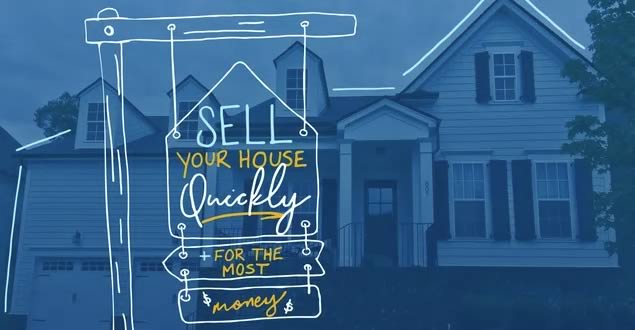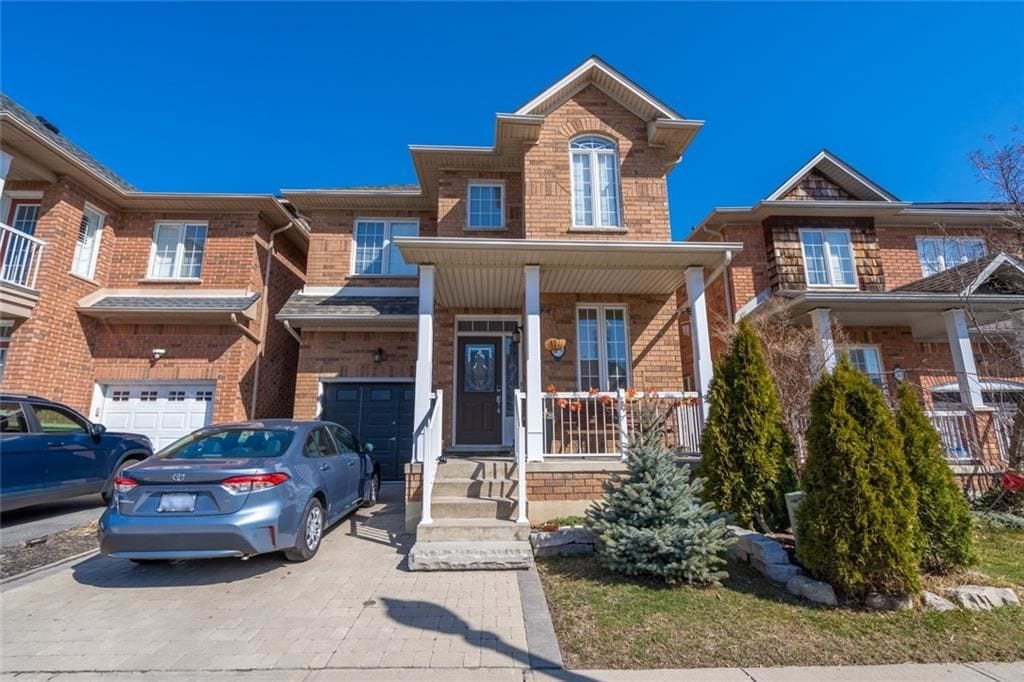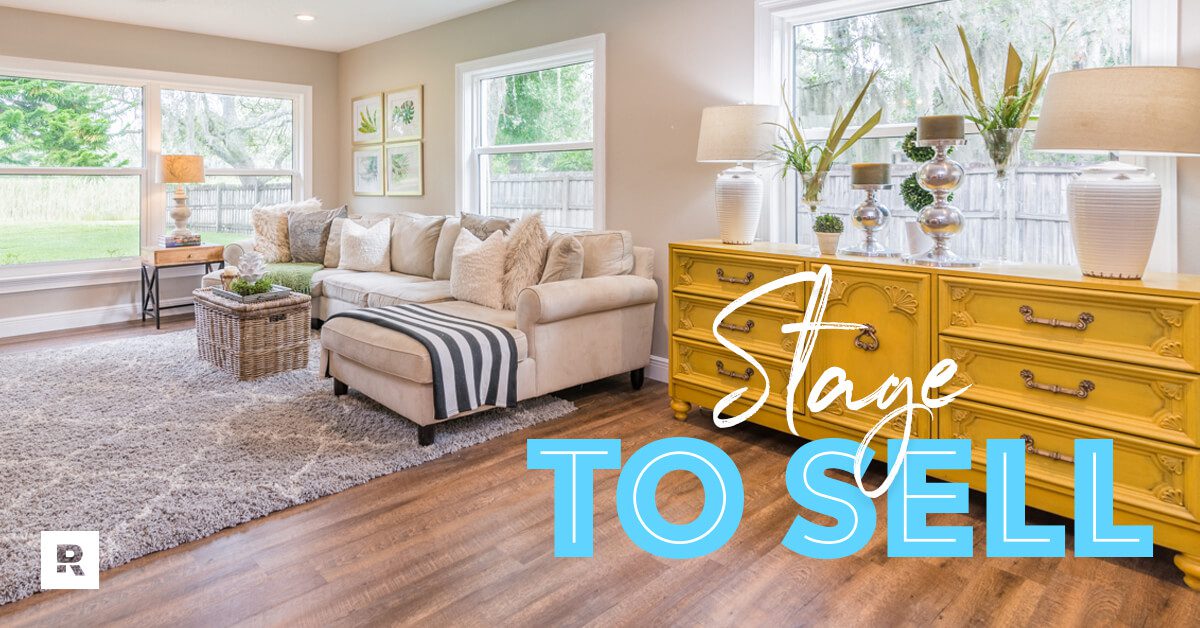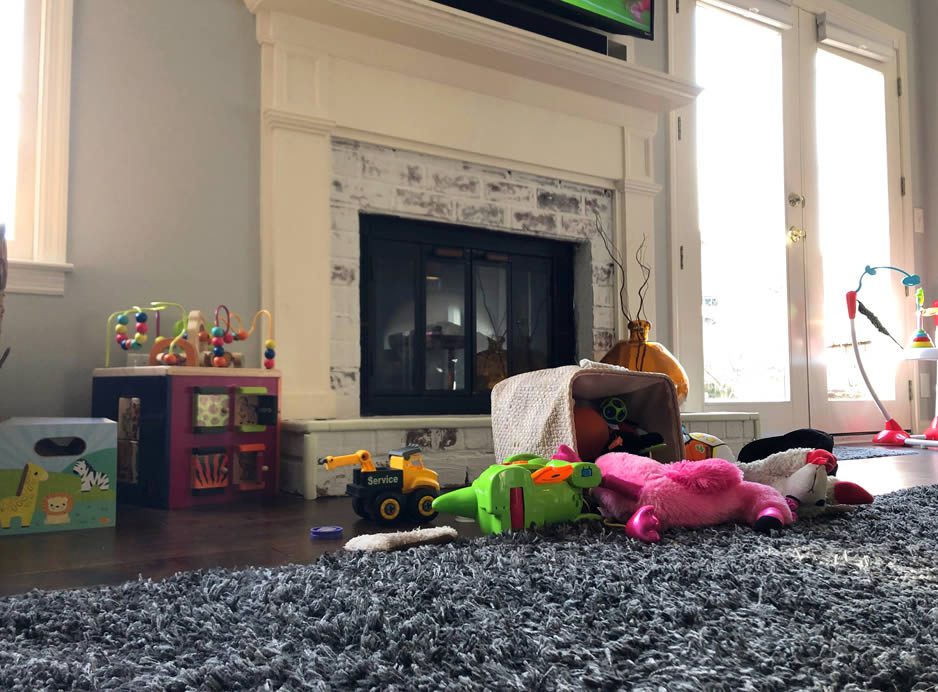Sell Your House Quickly, For The Most Money!

Home Selling 101:
How to Sell a House in 7 Steps
So you’re ready to sell your house. While 2023 / 2024 might have gotten off to a rocky start, selling your home to move onto your next adventure is one way to turn life’s lemons into a sweet pitcher of lemonade.
No matter what else is going on in the world, selling your house is always a big deal. You probably have countless memories there, and you’ve spent time, money and effort making it a special place. Just remember, if selling is the right thing for you and your family, it’s worth it!
If you’re ready to make a move, you want to sell your house the smart way. This article will help you learn how to sell your house quickly and for the most money.
Let’s get started!

How to Sell a House in 7 Realistic Steps
Selling your house and moving is a big transition to make, but it doesn’t need to be a stressful experience. Learn how to sell a house the right way with these seven steps!
1. Find a stellar real estate agent.
Real estate agents are a dime a dozen. That’s why you don’t need just any agent. You need the right agent. Find someone who will super-serve you, negotiate the best deal, and sell your house fast! As tempting as it is to have a relative, a friend from church, or your cousin’s husband’s buddy help you, always stick with a vetted professional who has experience and can sell your home for the most money in the shortest amount of time!
![]() Find expert agents to help you sell your home.
Find expert agents to help you sell your home.
Can I sell my house myself?
Look, everybody loves saving money, and selling solo can seem like a great way to do just that. But is For Sale by Owner (FSBO) really all it’s cracked up to be? First of all, if you really want to sell your home, you need to get it in front of buyers—and lots of them. This is where an agent comes in handy.
An experienced real estate agent will give your home a much-needed online presence through the Multiple Listing Service (MLS), which will expose it to thousands of potential buyers. Plus, an agent will develop a targeted strategy to market your house to their extensive network of buyers and agents.
Can you save big money by going FSBO? Not really. Even when you sell your home yourself, you still have to pay a commission to the buyer’s agent. You’d only save the commission on one side of the transaction.
A great agent will more than make up for that cost. Consider this: The latest National Association of Realtors data shows that the average home sold by an agent last year brought in $280,000. In contrast, the average FSBO home went for $200,000.1 That’s an $80,000 difference!
Consider this: The latest National Association of Realtors data shows that the average home sold by an agent last year brought in $280,000. In contrast, the average FSBO home went for $200,000.1 That’s an $80,000 difference!
Trust us—working with a great real estate agent helps you get the most money for your home.
2. Price your home to sell.
Remember this: Your home is only worth what buyers are willing to pay. Therefore, you need to think objectively about your home’s value. If you’ve lived in your home long enough to make memories, those sentimental ties could cloud your judgment. So, stick to the facts as much as possible when you estimate how much your home could sell for.
The best way to determine your home’s value is to ask a real estate agent to run a comparative market analysis (CMA). This free report compares your home to other homes near you that are comparable in size, have similar features, are currently on the market, or have sold in recent months. The comparison allows your agent to more accurately predict what buyers will pay for your home.
Your CMA will offer several pages of information, including photos and a map of all the properties in the analysis. A true pro will take time to walk you through the results so you understand exactly how your home stacks up against the competition. With this information in hand, you can work with your agent to set a competitive price that’s based on fact, not emotion
3. Set a home-selling timeline.
Make the most of the weeks and months leading up to your home sale. If you have an idea of when you want to list your house, break your to-do list into manageable bite-size pieces. The timeline below will get you started. Of course, you can adjust according to your own needs and personal schedule.
ASAP
- Interview real estate agents: Take time to find a pro who has a proven track record and confidence to boot.
- Outline a plan: Work with your agent to set priorities so you can focus on finishing one task at a time.
- Declutter: Decide what you can live without until your home sells. Then pack it up and get it out!
2–3 Months Before Listing
- Hire a home inspector: Identifying issues early in the home-selling process lets you work the cost of repairs into your budget on the front end so they don’t wreck your deal later.
- Tackle repairs: Ask your agent where your fix-it dollars will do the most good.
1–2 Months Before Listing
- Set the stage: Create an inviting space that lets buyers see your house as their home.
- Deep clean: Scrub every surface until it shines. Hire a pro to make carpets and rugs look—and smell—new again.
- Apply finishing touches: Get your home picture-perfect so your photographer can capture it in the best possible condition.
Again, the key to keeping stress at bay during the weeks and months leading up to putting your home on the market is to make a plan—and then follow that plan. Working with a pro can help you relax and understand the selling process so you have realistic expectations. 
4. Consider getting a home inspection before listing.
Most home buyers know it pays to get a home inspection. But did you realize it’s a worthwhile tool for home sellers too? It’s true!
A presale inspection might cost a few hundred dollars, but it’ll be money well spent. Why? Because it can keep buyers from demanding big bucks during negotiations.
A presale inspection might cost a few hundred dollars, but it’ll be money well spent. Why? Because it can keep buyers from demanding big bucks during negotiations.
So, what’s included in a home inspection?
According to the American Society of Home Inspectors (ASHI), a home inspection covers:2
- Electrical, plumbing, heating and cooling systems
- Windows, ceilings, walls, doors and floors
- Attic, visible insulation and roof
- Foundation, structural elements and basement
A qualified home inspector combs a property’s accessible areas to assess the home’s condition and identify any health and safety issues. Once the inspection is complete, you’ll receive a detailed report outlining what works and what doesn’t, with recommendations for maintenance and repairs.
Don’t worry about addressing every single finding in your home inspection, but you should pay attention to big-ticket issues. These can scare buyers into asking for way more money than it actually takes to fix them. Your agent can help you sort through the inspection findings, but the roof, electrical, plumbing and HVAC systems typically take priority. If you have room in your budget, see to those before you list your home.
5. Stage your house and get it ready for potential buyers.
Once your home is in good working order, it’s time to set the stage and show off its best features. That starts with a deep cleaning. Here are some ways to make your house look great.

- Scrub every surface until it sparkles. We can’t emphasize this enough! You need to polish your home and keep it clean during showings.
- Apply a fresh coat of paint. It might take some time, but it’s time well spent. Plus, paint is relatively cheap considering the impact it has on making a home look fresh and inviting.
- Pay a professional to deep clean rugs and carpets.
- Minimize clutter to maximize space.
Once you have a clean home, you can begin to stage. Keep your décor colors neutral and try to depersonalize as much as possible. Take down most of your family photos so buyers can imagine their families enjoying your house. Closets are always important to home buyers, so create the impression of spaciousness by storing away out-of-season clothing and miscellaneous gear.
Don’t forget to stage outdoors too. Clean your front porch and place nice planters near your entryway. If you have a deck, pressure wash it and add a few colorful plants to give the space an extra pop.
Make sure your home is ready for photos. Professional shots that show off your house’s features are an essential part of your online listing. Your agent should help coordinate the photo shoot, so that’s less pressure on you. Here are a few additional staging tips to get your home prepared for its glamour shot:
- Stay organized. Again, a tidy home is nonnegotiable. Channel your inner Mr. Clean or Snow White and whistle while you work if you have to. Just clean up the place.
- Pick up the toys and pet stuff. Babies and puppies sell breakfast cereal but not homes. Keep the kid clutter and pet supplies under wraps.
- Add extra touches. A pair of decorative pillows or a few green plants will add life to any room.
- Clear the counters. Throw your juicer and blender in the kitchen cabinet. The same goes for your bathrooms. Pitch those personal items in a drawer to keep them out of sight.
- Add more lighting. Bright rooms make your home look bigger. Open the curtains, pull up the blinds, and let the sunshine in! But before you do all that, be sure to devote time to washing your windows. In spaces that don’t get much natural light, a well-placed lamp can make a big difference!
- Go easy on the rugs. Rugs generally don’t photograph well, and they can make your space look smaller. Your agent can help you decide which rugs can stay and which ones should go.
- Put a lid on it. Your toilet, that is. Friends don’t let friends leave the lid up during a nice photo shoot.
Keep in mind, staging should bring out the positives of your house without overwhelming potential buyers. When in doubt, less is more. The right real estate agent can help you know the difference between good and gaudy staging.
6. List your home and survive the showings.
Home showings are hard to juggle regardless of whether your home is empty or full of kids. If you’re still living in the home you’re trying to sell, these handy tips can help you stay sane and get your home sold.
Tip #1: Make a daily to-do list.
Surprise showings always seem to happen when your home is a complete wreck. Reduce last-minute panic by putting things away as soon as you’re done with them and creating a checklist of simple tasks to knock out before you leave every morning. That way, you’ll always be ready for guests.
Tip #2: Find a place for your pets during showings.
Man’s best friend can be your home deal’s worst enemy. Leaving pets home for showings can get messy, and a yap-happy dog is just plain annoying. Take the fur babies for a joyride or send them to Grandma’s house so buyers can focus on your home’s best features.
Tip #3: Try to be flexible.
Separating yourself from the place you’ve called home can be hard. But if you want to make a deal, you’ve got to give buyers time and space to fall in love with your home. Be flexible about scheduling showings, and don’t make buyers step around you—or your feelings—when they visit.
Tip #4: Tackle the toys.
Paring down the piles of plastic is a tough task, but it sure does make cleanup a breeze. Ask your kids to choose a few favorite toys to keep in their rooms, and then store the rest in bins. Be sure to explain to them that they’ll see their toys again. If they get bored with their selections, you can always rotate toys in and out.

Tip #5: Enlist help from the kids.
Want to ease your load? Give Junior a job to do! It’s a great way to teach the value of hard work. Have a little fun and build big motivation by running timed practice drills. Don’t forget to recognize a job well done. If you can’t spare extra cash, quality time spent with you works too!
Do the best you can, but remember, you’re only human. There will be days you just can’t get everything put away and make it out the door on time. If you get a call for a showing, tell your agent you were running behind so they can prepare the buyer ahead of time. Just don’t miss an opportunity to get your home seen!
7. Negotiate the contract and close.
Negotiations between you (the seller) and the buyer kick off with the buyer’s initial offer. Keep in mind the contract stage works differently in every state, so your agent should explain those details in terms you understand. Never sign a purchase agreement before you’re clear about what is and is not included in the offer—and how it affects you.
Pay close attention to these details:
- Purchase price
- Closing or escrow date
- Special allowances for personal property, home improvements and closing costs
- Contingency deadlines for the home inspection, appraisal and buyer financing
- Additional contingencies such as the sale of the buyer’s current home
Once you and the buyer reach a final purchase agreement, you won’t be sitting pretty quite yet. There’s still a lot to do from contract to closing, so here are some quick tips to help you manage this stage of the game:
- Don’t wait until the last minute to pack.
- Communicate with your buyer.
- Keep your home insurance up-to-date until you’ve signed the dotted line.
- Make a list of what to bring on closing day.
- Remain flexible because delays can, and will, happen.
How Long Does It Take to Sell Your Home?
There’s not a one-size-fits-all answer to how long it will take to sell your home. The average time on the market for 2020 is currently around 60 days—the time from when the home is listed to when it closes.3 Keep in mind that number is just an average. How long it actually takes to sell your house depends on the real estate trends in your area and the particulars of your home.
Here are some of the factors that can impact your home-selling timeline:
- The hot (or not) nature of your real estate market. If you live in an area with a hot market, you can typically expect your home to sell faster than in markets where buyer demand is low.
- The season. If you want to maximize your sale price and decrease the time your home is on the market, listing your home in late spring is going to be your best bet. But that’s not true for every home or market. And ultimately, the best time to sell your house is when it’s the right time for you.
- Your home’s location, location, location. Details like what school your home is zoned for, which neighborhood the house is in, and how close your home is located to restaurants and shopping can also affect how long it takes to sell.
- Your home’s price point. Larger, more expensive homes can take longer to sell because the pool of buyers is smaller.4
- The time it takes to get your home sell-ready. If you decide to take on some updates or repairs to your home before listing, your selling timeline will be longer.
- The closing process. If your buyers are getting a mortgage, the closing date is dependent on their financing. Your closing could also be delayed by home inspection or appraisal issues.
Remember, these are just some of the factors that can affect how long it takes to sell your house. You can talk to your real estate agent about what a realistic timeline is for your specific home.
How Much Does It Cost to Sell Your House?
Even though you’ll be making money from the sale of your home, there are some home-selling costs you have to pay in the process. How much you end up paying start to finish depends on the sale price of your home, what repairs you have to take care of, and how much it takes to get your home ready to list.
Here are some of the costs you may need to prepare for:
- Real estate commission. As the seller, you’ll be responsible for paying the real estate commission, which is split between the buyer’s agent and your listing agent. Usually that commission is 6% of the home’s sale price.5
- Staging your home. As you’re preparing to list your house, you could spend some money getting your house staged or investing in some new décor to give your space a fresh look.
- Repairs or maintenance. You may decide to take care of some repairs, like fixing a leaky faucet or painting those scuffed baseboards, before you list your home. Or if the home buyer does a home inspection, they may ask you to do some repairs before closing.
- Fees negotiated in the contract. As part of your purchase and sale agreement, the buyer may ask you to cover a portion of the closing costs, title insurance or other fees.
Sell Your House Faster With a Professional Agent
The best way to have a great experience selling your home is to partner with a professional agent. The right agent should guide you every step of the way without taking over the driver’s seat. They should inform you but not overwhelm you.
Our local licensed real estate Realtor Sean Findlay is just the ticket to take the stress out of your home sale. Realtor Sean Findlay is a professional Canadian real estate agent who has a track record of success and excellent customer service.
